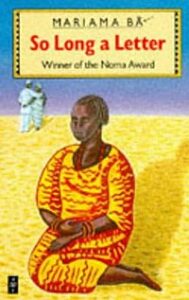The Trials of Brother Jero is a play written by Nigerian Nobel laureate Wole Soyinka and published in 1960. The play follows the character of Brother Jero, a fraudulent pastor and con artist who manipulates his followers for personal gain. Through satire and comedic elements, Soyinka critiques the corrupt and power-hungry nature of religious leaders in Nigeria.
The play begins with Brother Jero sitting on the beach, dictating letters to his secretary, Chume. Jero is constantly interrupted by various characters seeking his advice or help, including Amope, a young woman seeking a blessing for her pregnancy, and Jero’s rival, Prophet Jeroboam. Jero manipulates and lies to each of these characters, using his position as a pastor to gain power and money.
One of the main themes of the play is the corrupt nature of religious leaders. Jero is shown to be a fraud, using his position as a pastor to manipulate and exploit his followers. He uses his charisma and charm to convince people to give him money and favors, and is more concerned with his own wealth and power than with helping others. Soyinka uses Jero’s character to critique the corrupt and self-serving nature of some religious leaders, and the harm they can cause to their followers.
Another theme of the play is the role of religion in society. Jero uses his position as a pastor to gain power and influence, but he is shown to be deeply cynical about religion. He dismisses the importance of faith and the power of prayer, and instead sees religion as a means to an end. This critique of religion is further enhanced by the character of Prophet Jeroboam, who is portrayed as a true believer but is also shown to be corrupt and power-hungry. Soyinka suggests that both religious leaders who use their positions for personal gain, and those who truly believe in their faith, can be harmful to society.
The play also explores the theme of gender roles and relationships. Amope, the young woman seeking Jero’s blessing, is shown to be submissive and obedient to Jero, despite his manipulation and lies. She is also manipulated by her husband, who uses her pregnancy as a way to gain money and power. Soyinka uses the characters of Amope and Jero to critique the patriarchal nature of Nigerian society, and the harm it causes to women.
The Trials of Brother Jero is a well-written and thought-provoking play that uses satire and comedy to explore important themes such as corruption, religion, and gender roles. Soyinka’s writing is sharp and incisive, and the play is full of memorable characters and dialogue. A must-read for anyone interested in Nigerian literature or the role of religion in society.




